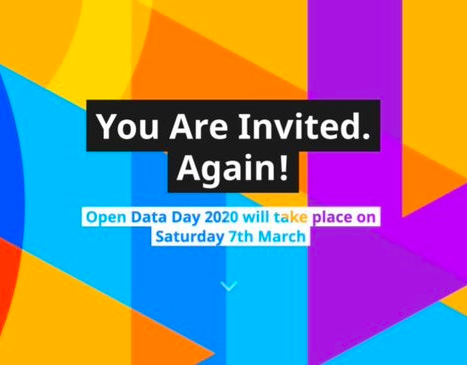249 resultaten gevonden
Skip results of view Verhalen over data

Openly available data on COVID-19 can contribute to the global effort in fighting the virus. To play its part in combatting this pandemic, the European Data Portal (EDP) team is shifting its focus on making COVID-19 related open data discoverable.
Several datasets relating to the pandemic are already available on the EDP via the national open data portals. As of today, Monday 6 April 2020, a new “EDP for COVID-19” section is available. In this new section, a list of datasets, data initiatives, and data stories that have been curated by the EDP COVID-19 team can be found. This piece is the

Coronavirus and COVID-19 Coronaviruses are a specific subset of virus with a unique set of characteristics. COVID-19 is the name caused by a specific strain of the coronavirus and is the seventh identified coronavirus. It was first reported in December 2019 in Wuhan City, China. Since the first diagnosed case in China, COVID-19 has rapidly spread across the world. As of 16 March 2020, there have been COVID-19 cases detected in more than 140 countries in Asia, Australia, Europe, Africa, North America and South America. At this date, Europe is now the epicentre of COVID-19 with the largest

Open Data Day 2020 This year, the 10th anniversary of the Open Data Day was celebrated by the international open data community on 7 March 2020. Open Data Day is an international annual event where data enthusiasts gather to connect and build new solutions to complex social issues by using open data. The event aims to show the benefits of open data (such as an increase in efficiency, transparency, innovation, and economic growth) and to encourage the adoption of open data policies in various government bodies, businesses, and civil societies. Open Data Day takes place globally and includes

Geospatial data Geospatial data and information management is part of various fields, thematic areas, initiatives, and programmes within the European Union (EU). As such, the European Commission’s (EC) approach towards geospatial and Earth Observation data are diverse and several activities are recognisable. For example, in: Standardisation bodies such as OGC, W3C, and ISO; Legislative efforts in line with the Public Sector Information (PSI), open data, DSM; or Research, such as with the Joint Research Centre of the European Union. However, the two most well recognised driving forces to date

The European Data Portal publishes its study " The Economic Impact of Open Data: Opportunities for value creation in Europe". It researches the value created by open data in Europe. It is the second study by the European Data Portal, following the 2015 report. The open data market size is estimated at €184 billion and forecast to reach between €199.51 and €334.21 billion in 2025. The report additionally considers how this market size is distributed along different sectors and how many people are employed due to open data. The efficiency gains from open data, such as potential lives saved, time

Open Data and Artificial Intelligence - a good interaction Water is one of three basic needs for humans. Our earth is mostly covered with water, while only two percent is fresh water. However, this topic does not only concern cities, but intelligent water management is one of the most vital challenges for smart cities in the future. With Open Data, it is possible to compare the water resources of countries as well as cities and derive measures from that. Regarding resource water management, the combination of Open Data and Artificial Intelligence (AI) builds a good interaction to help managing

Often, when Open Data is discussed, the focus lies most of the time on business opportunities and the various benefits that Open (Government) Data holds for the economy and government, in particular with regards to fostering business innovation and efficiency gains. Further benefits however have also been quantified on other dimensions, such as the environmental and societal ones. Concerning the latter, the focus lies here on the added value that Open Data brings for democracy by enhancing transparency of political processes as well as boosting participation of citizens in the decision-making

The Open Data Incubator for Europe (ODINE) has awarded a total of €1.7m to the eighteen businesses selected for its first and second cohort. The startups and SMEs Sickly, Thingful, Pikhaya Smart Streets, CommoPrices, InSymbio, Instats, BikeCitizens, openlaws, OpenResort S/I-as-a-Service, IBeacons Living Lab, Open Data based Fire Risk Assessment, Farm Dog, Plume Air Cloud, DataPress, OpenGazettes, Provenance, RentSquare, and Unigraph hail from Austria, Estonia, France, Greece, Netherlands, Israel, Italy, the UK and Slovakia. The business provide solutions to pressing economic, social, and

On the 4th and 5th November 2017, North Rhine-Westphalia (NRW), one of Germany's 16 federal states, held the 3rd annual hackathon in a row. The annual #NRWHack is a successful and one of a kind platform bringing together the Open Data community and representatives of the public administration in NRW, and aims at facilitating communication and cooperation as well as awareness for Open Data. What could the participants expect? Open data enthusiasts, an open dialogue with public administration representatives and lots of Open Data - this time in particular Open Geo Data and Open Mobility Data -

With the summer holidays just around the corner, people are planning trips to numerous places all over Europe. Finding the right travel destination is not always easy, with a lot of competitive destinations throughout Europe. And what kind of activities can be undertaken at your destination? Here, Open Data can help out - both for the preparation of your trip as well as for travel information on the spot. And there is Open Data for all kind of travel purposes, regardless of whether you are going to visit a city, explore nature or relax on the beaches. For instance, 695 datasets are found for "
